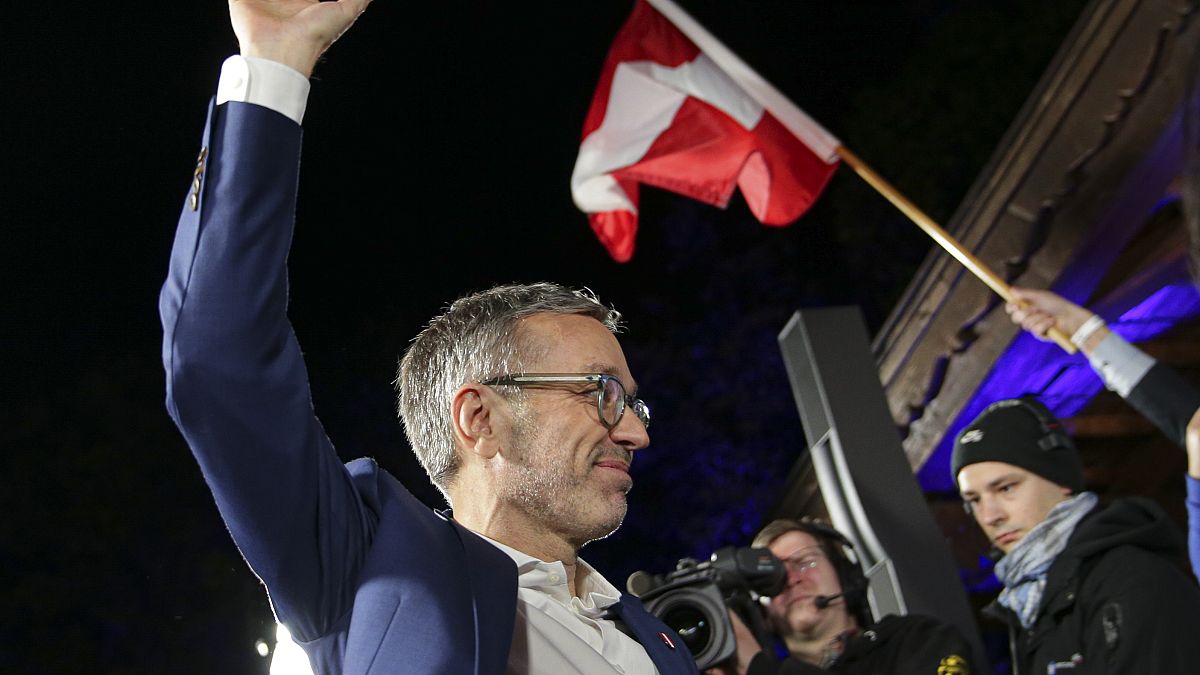Austria is on the cusp of potentially having a far-right party in power as the Freedom Party (FPÖ) emerged victorious in the recent general election. The anti-migration, pro-Kremlin party, which has its roots in former Nazis, secured its first-ever win in a general election, sparking concerns about the influence of such parties within the European Union. The FPÖ’s victory could have far-reaching implications for the EU as a whole, given the recent success of far-right parties in various member states.
Christine Neuhold, a Professor of EU Democratic Governance at Maastricht University, emphasized the strong anti-migration rhetoric that played a key role in the FPÖ’s success. The rise of the far right is not limited to Austria, as similar parties have achieved significant electoral victories in Hungary, Italy, The Netherlands, Finland, Czechia, and Croatia. While Austria may not have a far-right party in power just yet, the FPÖ’s success raises the possibility of a shift towards right-wing policies within the country, potentially impacting its role in European decision-making.
Despite the rise of far-right parties across Europe, Neuhold noted that the FPÖ is still not in a position to govern independently. The party would need to form coalitions with other parties to secure power, leading to uncertainties regarding their future participation in government. While the far right is gaining ground in other member states like France and Germany, the fragmented nature of these parties poses challenges to their influence on European policies. Nonetheless, their presence is likely to provoke discussions and debates within European institutions.
Neuhold highlighted a general trend towards right-wing ideologies across Europe, which may lead to a more polarized European Parliament. The far-right voices are expected to advocate for stricter migration policies and potentially delay the implementation of initiatives like the Green Deal. However, the overall impact on European policy-making in the short term may be limited due to the complex procedures and various majority requirements. While the right-wing shift may not immediately alter European policy, it could shape future debates and decision-making processes within the EU.
At the European level, the FPÖ’s victory is anticipated to amplify the calls for tougher migration regulations and may impact the implementation timeline of key initiatives like the Green Deal. The far-right parties in Europe have varying stances towards Russia, indicating internal divisions within these groups. As the FPÖ and other similar parties exert their influence, discussions around migration, environmental policies, and foreign relations are expected to intensify within the European Parliament. Despite these developments, the long-term consequences of the far-right surge on European policies remain uncertain.











